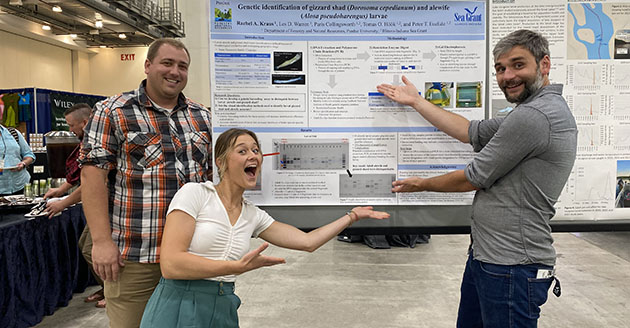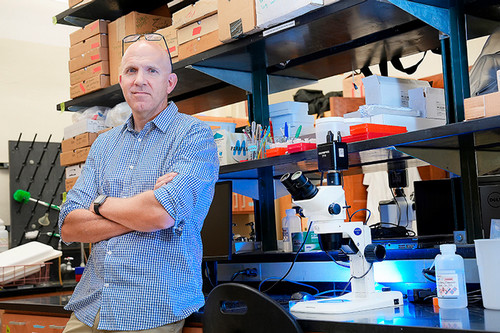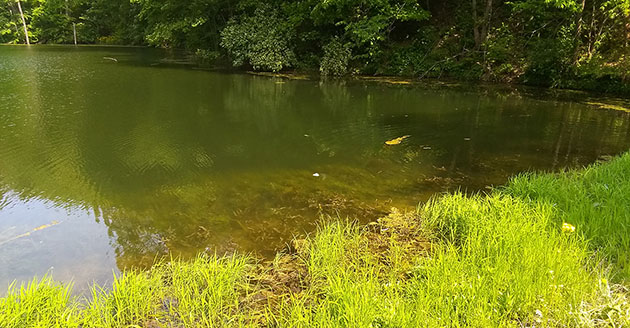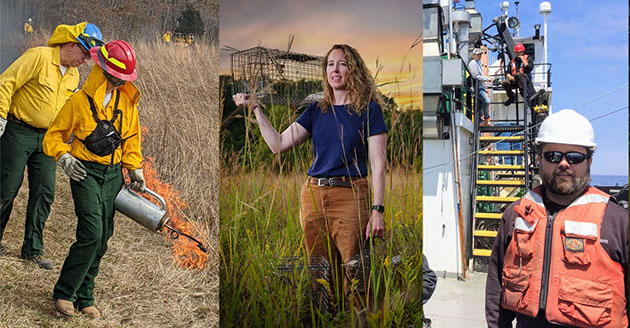Research - Aquatic Sciences
Develop and disseminate knowledge about aquatic animals and their habitats, including aquaculture; interactions between aquatic and terrestrial ecosystems; and fates and effects of pollutants; and appropriate management practices for the protection and use of aquatic ecosystems.
Areas of specialization in aquatic sciences include:
- Fisheries Biology
- Aquaculture
- Aquatic Animal Nutrition
- Aquatic Animal Physiology
- Aquatic Toxicology
Faculty
Dr. Clement Bataille - Isotope hydrology, weathering processes, northern watersheds, permafrost, anadromous fish migration, freshwater fisheries, watershed isoscapes
Dr. Paul Brown - Aquatic animal nutrition, physiology, biochemistry
Dr. Mark Christie - Fish ecology, genetics, evolution, and pedigree analysis
Dr. Paris Collingsworth - Aquatic ecosystems, Great Lakes, organismal biology
Dr. Andrew DeWoody - Population genetics, molecular ecology and evolution
Dr. Reuben Goforth - Aquatic ecology, fish and insect species and communities in streams, species persistence, community ecology
Dr. Tomas Höök - Fish ecology and ecological modeling focusing on recruitment processes, foodweb interactions, bio-physical coupling, eutrophication effects and fish life history trait variation
Dr. Tyler Hoskins - Aquatic ecotoxicology, contaminant bioaccumulation, PFAS toxicity, stressor interactions, ecological modeling
Dr. Jason Hoverman - Herpetology, disease ecology, effect of multiple stressors on community dynamics
Dr. Kwamena Quagrainie - Aquaculture economics, fish marketing, aquaponics systems
Dr. Maria Sepulveda - Ecotoxicology, development and application of molecular biomarkers of exposure and effects to environmental contaminants in vertebrate and invertebrate animal models
Dr. Dylan Wainwright - Fish and shark functional morphology, biomechanics, evolution, comparative phylogenetic methods
Dr. Rod Williams - Ecology and conservation of amphibians and reptiles, education and outreach, genetics
Learn More About Our Research
View our nine research areas along with our world-class faculty, Research Areas.
FNR research centers seek to support and enhance the research and partnership enterprise at Purdue University. The centers are valued and encouraged at Purdue as they create a venue for faculty to come together to pursue common goals. Forestry and Natural Resources have faculty and staff involved in six centers here at the University.
The Department of Forestry and Natural Resources maintains an impressive collection of state-of-the-art research and education facilities. These labs, green houses, and educational facilities are a fundamental component that enables our faculty and students to learn, make new discoveries, and engage our clients in using these discoveries to sustain our nation’s ecosystems and natural resources.
The mission of the Department of Forestry and Natural Resources is to develop and disseminate knowledge in the natural resource sciences associated with the protection, management, and sustainable use of terrestrial and aquatic ecosystems. One way the department accomplishes our mission is by owning and managing 24 properties located throughout the state to provide opportunities for research, extension, and education that achieves sustainable use of our natural resources.





